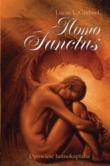
|
Biblia » Nowy Testament » NT - spojrzenie krytyczne The Self-Centered Savior If anyone would ever speak of himself as many times as Jesus spoke of Himself, he would undoubtedly be the most unliked and obnoxious character in the world. Yet Jesus many times said, 'I am.' He said, 'I am the door.' He said, 'I am the way.' He said, 'I am the water.' He said, 'I am the bread.' He said, 'I am the truth.' He said, 'I am the life.' In spite of the fact that He pointed to Himself in His conversation, they are the most wonderful words ever spoken." — Pastor Tom Malone Should we regard the Jesus of the Gospels and his countless self-references as „obnoxious" or „wonderful"? Did Jesus think of himself as the center of all things? Let us consider a few of these self-references. 1. „Meek and Lowly""I am meek and lowly in heart" (Matthew 11:29), says Jesus. Here Jesus sounds like the proverbial man who is proud of his humility. Jesus' assertion of his own humility robs his humility of its reality. Now let us turn to the next chapter, Matthew 12. 2. Solomon and JonahOne day Jesus said to the people, „Behold, one greater than Solomon is here. Behold, one greater than Jonah is here" (Matthew 12:41-42; Luke 11:31-32; KJV and Weymouth's New Testament in Modern Speech). In other words, „I am greater than Solomon, and I am greater than Jonah. As you all know, Solomon was wiser than anyone else in the world. People from all over came to listen to him teach (1 Kings 4:29-34)! But I say unto you, my wisdom is infinitely superior to that of Solomon." Jesus continued to astonish his audience: „I also remind you that Jonah's powerful preaching persuaded the people of Nineveh to repent and believe in God (Jonah 3:4-5). But I say unto you, I surpass Jonah in every way as a preacher and prophet. In short, I am high above the revelation God has given through the prophets and wise men of old." Is that egocentrism, egomania, egotism, or what? Whatever we call it, it's hardly meekness and lowliness. A worthy affirmation goes like this: „Today I grow wiser and better than others if I can, but I don't tell them about it." Jesus didn't exemplify that one! 3. Seven I-Am SayingsJust how „meek and lowly in heart" Jesus was is also shown by his seven egocentric „I-am" statements in John. A „I am the bread of life" (6:35,48,51), meaning, „I am the absolute essential, without which your real life cannot begin or continue so abundantly that your every desire will be satisfied forever." B „I am the light of the world" (8:12; 9:5), meaning, „I am the only one who exposes and dispels all the forces of darkness everywhere in the whole wide world." C „I am the door" (10:7,9), meaning, „I am the one and only one through whom people enter the fold of the saved and find God." D „I am the good shepherd, who lays down his life for the sheep" (10:11,14), meaning, „I am the shepherd par excellence, and I love my sheep so much I'll give my life for them." Incidentally, Jesus here is not exactly complimenting his followers when he calls them „sheep" (or, we might say, „sheeple"), for sheep are noted for their stupidity and for blindly following one another straight to the slaughterhouse. E „I am the resurrection and the life" (11:25), meaning, „I am the Savior who raises believers from their graves to enjoy the bliss of everlasting life." F „I am the way, the truth, and the life" (14:6), meaning, „I am the one and only way to my Father in heaven." G „I am the true vine" (15:1,5,7), meaning, „I am the excellent vine. If you stay joined to me and let my teachings become part of you, then whatever you ask of me will be done." There's no doubt about it. These are enormous and breathtaking claims, especially coming from the lips of a self-professed humble person. They impress many of us as being preposterous and utterly absurd, reflecting delusions of grandeur. How odd it is that Jesus, who referred to himself as „meek and lowly" (Matthew 11:29) should contradict that claim by uttering the seven I-am sayings which illustrate the extent to which Jesus was engrossed in his own ego. Most of us find it more pleasant to hear someone's praises out of another's mouth than out of his/her own. We react negatively when someone toots his/her own horn. Thus we would have been more favorably impressed if someone other than Jesus had said, „Jesus is the bread, the light, the door, the shepherd, the resurrection, the life, the way, the truth, and the vine." 4. The Son's Knowledge Another oddity: Jesus prefaced his profession of humility (Matthew 11:29) with one of the most egoistic utterances in the Gospels: „All things have been handed over to me by my Father, and no one knows the Son, except the Father; nor does anyone know the Father, except the Son, and anyone to whom the Son wills to reveal him" (Matthew 11:27; Luke 10:22). What kind of humility is that? It's the same kind of humility demonstrated in the other sayings we are examining. 5. The Clincher The extent to which Jesus regarded himself as the center of all things is illustrated by his words to his disciples: „All authority has been given to me in heaven and on earth" (Matthew 28:18). In other words, „My Father has given me ruling power, supernatural power, and universal power in heaven and on earth." Jesus did have too much ego in his cosmos! He was the self-centered Savior! 6. Buddha and Jesus Now consider Buddha. He believed the gospel he preached was a beneficent one, but he urged his followers not to think of him but to concentrate on his teachings. What a contrast between Buddha's winsome humility and Jesus' objectionable egocentrism! Compared to Buddha, Jesus does seem obnoxious. Published in the 2002 November/December issue of the American Rationalist ©. « NT - spojrzenie krytyczne (Publikacja: 14-06-2003 Ostatnia zmiana: 21-09-2003)
str. 2497 |
|||||||||||||||||||||||||||||||||||||||||||||||||||||||||||||||||||||||||||||||||||||||||||||||||||||||||||||||||
| [ Regulamin publikacji ] [ Bannery ] [ Mapa portalu ] [ Reklama ] [ Sklep ] [ Zarejestruj się ] [ Kontakt ] Racjonalista © Copyright 2000-2018 (e-mail: redakcja | administrator) | ||




